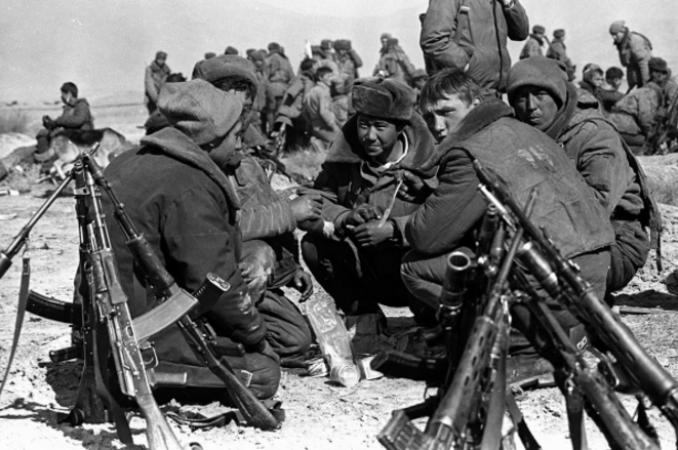
New Delhi: The Soviet-Afghan War, a protracted armed conflict fought from 1979 to 1989, left a profound impact on Afghanistan and the global stage. Initiated by the Soviet Union's invasion of Afghanistan on December 24, 1979, the war saw extensive fighting between Soviet forces, the Afghan government, and allied paramilitary groups against the Afghan mujahideen, foreign fighters, and anti-Soviet Maoists. This article explores the origins, events, and consequences of the war, shedding light on its complexities and controversies.
The Soviet Invasion
The war's roots can be traced back to the 1978 Saur Revolution in Afghanistan, which brought a pro-Soviet government to power. In response to the instability and growing anti-communist insurgency, the Soviet Union, under the leadership of Leonid Brezhnev, launched an invasion to support the Afghan government during Operation Storm-333. This move was met with international condemnation, leading to sanctions and embargoes against the Soviet Union.
The Mujahideen Resistance
The Afghan mujahideen, comprising diverse groups like Islamic fundamentalists, tribal leaders, and former Afghan military members, waged guerrilla warfare against the Soviet forces and the government. These fighters, backed by various countries and organizations, found major support from Pakistan, the United States (Operation Cyclone), the United Kingdom, China, Iran, and Arab states of the Persian Gulf. The U.S. supplied significant military aid, including advanced weaponry like Stinger anti-aircraft missiles.
The Toll on the Soviet Union
The war proved disastrous for the Soviet Union on multiple fronts. The mujahideen inflicted heavy casualties on Soviet troops, leading to increasing unpopularity of the war back home. The military intervention also strained the Soviet economy as resources were diverted from other projects, contributing to the country's internal challenges.
Also Read: Saudi F-15SA Fighter Jet Crashes, Claims Brave Crew's Lives
Withdrawal and Aftermath
In 1989, the Soviet Union withdrew its forces from Afghanistan, marking a significant shift in the dynamics of the conflict. However, this withdrawal did not bring peace to Afghanistan; instead, it plunged the country into a devastating civil war. The mujahideen eventually took control of Kabul in 1992, but their internal divisions and power struggles exacerbated the chaos.
Consequences and Impact
The Soviet-Afghan War had far-reaching consequences that reverberated globally:
The Soviet-Afghan War was a complex and controversial conflict with profound consequences. The invasion of Afghanistan by the Soviet Union, the resistance by the mujahideen, and the subsequent withdrawal marked a turning point in world history.
Also Read: Sweden's PM Slams Russia's 'Disinfo Campaign' Amid Quran-Burning Controversy
The war led to the rise of Islamic extremism and set the stage for ongoing instability in Afghanistan. The conflict's legacy continues to shape global politics and remains a subject of intense debate and study today.
As the world grapples with its impact, the lessons learned from the Soviet-Afghan War remain crucial in shaping future international engagements and understanding the complexities of conflicts in the modern era.